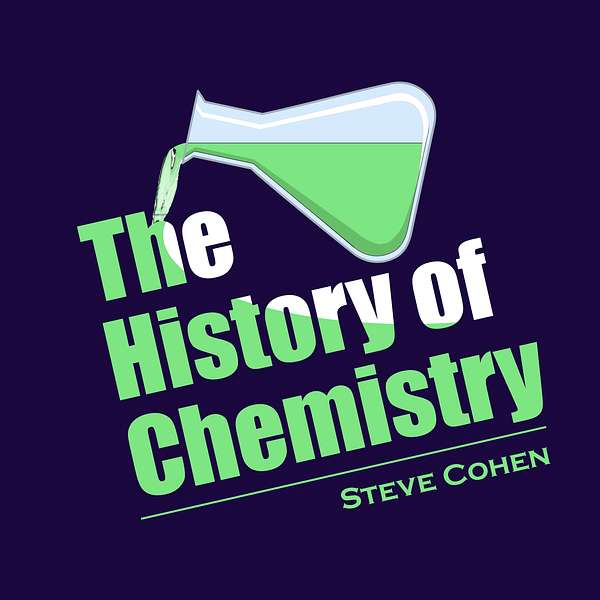
The History of Chemistry
Chemistry is everywhere, and involves everything. But how did chemistry get to be what it is? I'm Steve Cohen, a chemist and writer, bringing you The History of Chemistry. This podcast explores the development of chemistry from prehistoric times to the present, including the people and societies who made chemistry what it is today. The History of Chemistry is for you, whether you hated chemistry in high school, or got a PhD in inorganic chemistry. We'll explore how chemistry affected art, music, language, politics and vice-versa. Whether it's ancient Greek philosophers, medieval alchemists, or modern laboratory apparatus, it's all here. Don't forget to support my series at https://www.patreon.com/thehistoryofchemistry !
The History of Chemistry
68: Transuranium Elements
•
Steve Cohen
•
Episode 68
Use Left/Right to seek, Home/End to jump to start or end. Hold shift to jump forward or backward.
We discuss the discovery of elements 93 to 103, from 1940 through the early 1960s. We hear of Enrico Fermi's work, Otto Hahn and Lise Meitner's discovery of fission, McMillan and Abelson's success, and then the long tenure of Glenn Seaborg discovering elements. Albert Ghiorso was added to the mix. There were Cold War controversies over discoveries at Berkeley versus Dubna and even the Nobel Institute in Sweden. IUPAC was inconsistent with its imprimatur on discovery. Finally, we hear something of the tribulations and difficulties in doing radioactive analytical chemistry on tiny amounts of elements.
- Support my podcast at https://www.patreon.com/thehistoryofchemistry
- Tell me how your life relates to chemistry! E-mail me at steve@historyofchem.com
- Get my book, O Mg! How Chemistry Came to Be, from World Scientific Publishing, https://www.worldscientific.com/worldscibooks/10.1142/12670#t=aboutBook